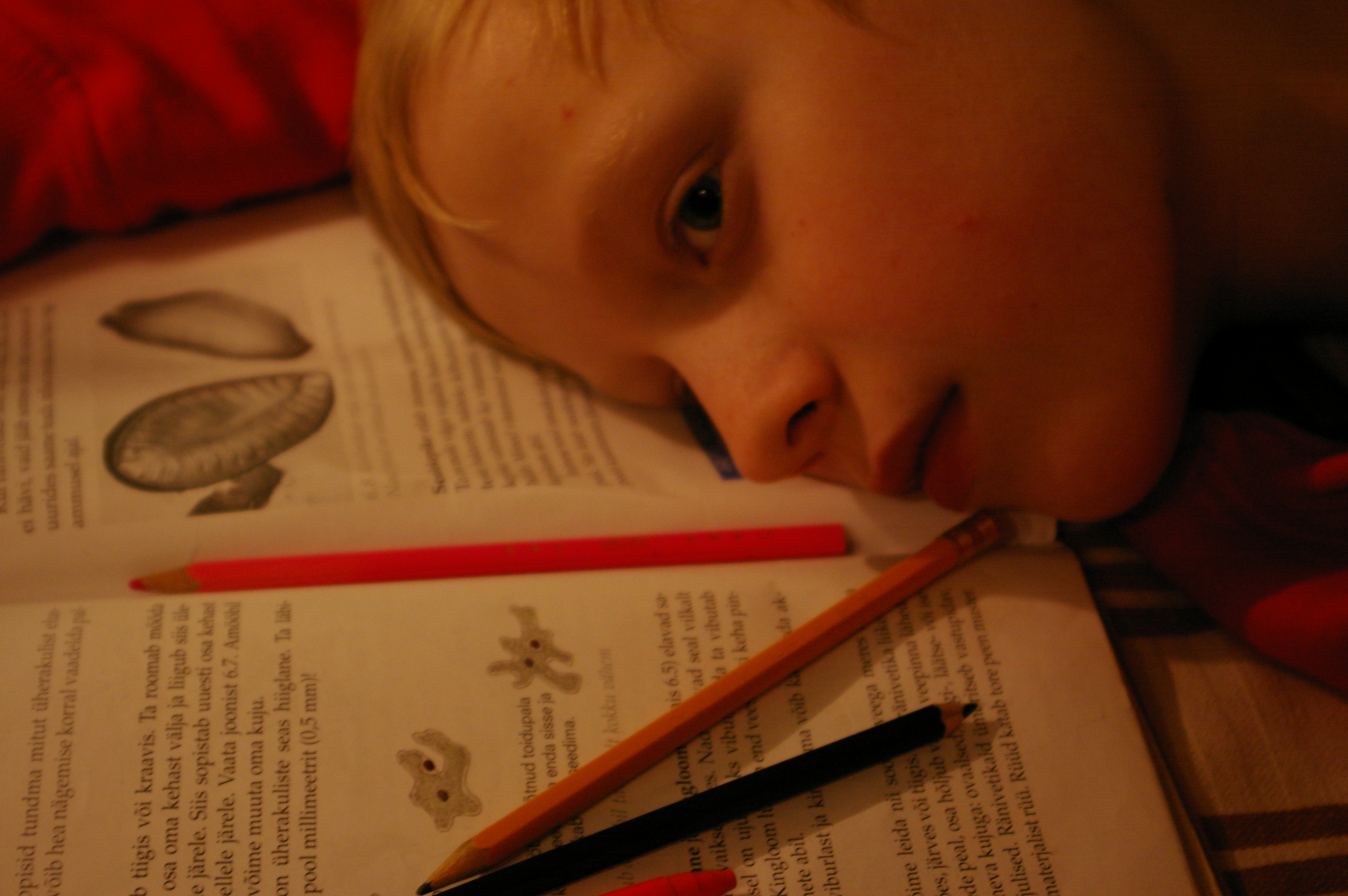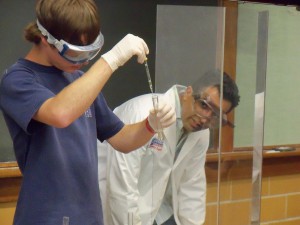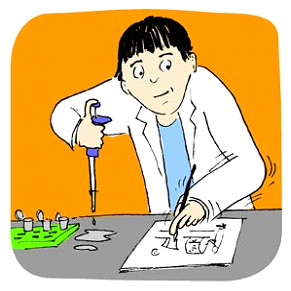 Times are hard. Unemployment is high. Networking and maintaining job-relevant connections is more important than ever. Employers literally get hundreds of applications for each job posting. One of the most useful ways to make yourself stand out in a crowd (besides things like credentials and resumes) is to have a personal recommendation. In my last post, I talked about the importance of making small talk (no matter how scary it seems!). Here, we’ll take it a step further. Once you’ve met new people and added them to your contacts list and perhaps your social networking sites, how can you use these contacts to help you achieve your goals? Continue reading “Networking for Scientists Part II: How to Get a Job (Hopefully)”
Times are hard. Unemployment is high. Networking and maintaining job-relevant connections is more important than ever. Employers literally get hundreds of applications for each job posting. One of the most useful ways to make yourself stand out in a crowd (besides things like credentials and resumes) is to have a personal recommendation. In my last post, I talked about the importance of making small talk (no matter how scary it seems!). Here, we’ll take it a step further. Once you’ve met new people and added them to your contacts list and perhaps your social networking sites, how can you use these contacts to help you achieve your goals? Continue reading “Networking for Scientists Part II: How to Get a Job (Hopefully)”
Careers
Networking for Scientists Part I: How I Learned to Talk to Strangers
![hide_face[1]](https://www.promegaconnections.com/wp-content/uploads/2011/11/hide_face1.jpg?w=300) When thinking about career opportunities in science (and in any field really), solid networking skills can be the key factor in determining where and how you’ll be spending your next holiday. Networking breaks down into two parts: small talk/meeting people and establishing/maintaining job-relevant connections. Neither of these things are rocket science, but can be particularly difficult depending on your personality. I realized early on that if I wanted to stay up on the latest, unpublished results, if I wanted to find out what other labs were working on, or if I wanted to know who was looking to fill a position before it was listed, I would need to master this skill. It took lots of practice, but I now consider myself pretty darn good at this networking thing. I even used the same strategies I used in the science world to build a network in the local music scene and it worked! In this post, the first of two parts, I will address small talk. Continue reading “Networking for Scientists Part I: How I Learned to Talk to Strangers”
When thinking about career opportunities in science (and in any field really), solid networking skills can be the key factor in determining where and how you’ll be spending your next holiday. Networking breaks down into two parts: small talk/meeting people and establishing/maintaining job-relevant connections. Neither of these things are rocket science, but can be particularly difficult depending on your personality. I realized early on that if I wanted to stay up on the latest, unpublished results, if I wanted to find out what other labs were working on, or if I wanted to know who was looking to fill a position before it was listed, I would need to master this skill. It took lots of practice, but I now consider myself pretty darn good at this networking thing. I even used the same strategies I used in the science world to build a network in the local music scene and it worked! In this post, the first of two parts, I will address small talk. Continue reading “Networking for Scientists Part I: How I Learned to Talk to Strangers”
When the Writing Gets Tough, the Tough Write about Semicarbazide-Sensitive Amine Oxidases

However, when I was asked to write about a new assay for semicarbazide-sensitive amine oxidases (SSAOs), my enthusiasm waned. This is a subject about which I know nothing, so I searched the literature to learn as much as I could. After reading several review articles I was able to write this scintillating paragraph: Continue reading “When the Writing Gets Tough, the Tough Write about Semicarbazide-Sensitive Amine Oxidases”
Odyssey of a Grad Student and the Playlist that Paved the Way
 Grad school is no walk in the park. Whether the topic is English or Astrophysics, most grad students would agree that the journey to the coveted PhD can simply be described as “hard”- academically, financially, mentally. It is very important to have an outlet for the associated stress such as a hobby or exercise. My outlet was music. Music is very important in my life. It is so important that most people close to me have their own soundtrack that plays in my head when I think of them. Needless to say, music played a big part in saving my sanity during my 7.5 years in grad school. As time went on, there were several songs that marked important milestones and emotions I experienced along the way. When I defended my thesis, I decided to leave the department with a musical story of how I made it through. I created a compilation CD of all these songs to share with the department and any other struggling grad students I encountered. The CD has a custom label featuring the structure of the protein I studied, cardiac troponin C.
Grad school is no walk in the park. Whether the topic is English or Astrophysics, most grad students would agree that the journey to the coveted PhD can simply be described as “hard”- academically, financially, mentally. It is very important to have an outlet for the associated stress such as a hobby or exercise. My outlet was music. Music is very important in my life. It is so important that most people close to me have their own soundtrack that plays in my head when I think of them. Needless to say, music played a big part in saving my sanity during my 7.5 years in grad school. As time went on, there were several songs that marked important milestones and emotions I experienced along the way. When I defended my thesis, I decided to leave the department with a musical story of how I made it through. I created a compilation CD of all these songs to share with the department and any other struggling grad students I encountered. The CD has a custom label featuring the structure of the protein I studied, cardiac troponin C.
In this blog, I will share with you that playlist, entitled “Odyssey of a Grad Student,” and a description of the significance of each track. You can listen to all but one* of the songs on YouTube (http://youtu.be/8qrriKcwvlY). Click the link and listen as you read along. Continue reading “Odyssey of a Grad Student and the Playlist that Paved the Way”
Four Tips to Stand Out in Your Job Search
Blog Updated August, 2024
Finding a job can be one of the most daunting tasks someone can take on. It seems like every time I browse the headlines or scroll through my LinkedIn feed, I read about another massive layoff or a stagnant market. But don’t lose all faith—there are jobs out there!

Whether you are a recent grad, were just laid off or are looking for a career change, the following tips can help turn your job search nightmare into a job search success story. All my suggestions can be boiled down to one message—PREPARE! Don’t go out into the job market without doing your due diligence. If you do, you may miss the opportunity of a lifetime.
Continue reading “Four Tips to Stand Out in Your Job Search”Spring Cleaning Our Lives
During spring cleaning we open up the windows, get rid of the junk we no longer need (or never needed in the first place) and give our carpets a much needed deep clean. When we are done we feel energized, organized, and focused—ready to take on the world again. What if we could apply this principle to our lives? Hear me out ….a big area of discussion these days is how to achieve a work-life balance. Sort of like spring cleaning for your life, getting better at organizing your time and taking more time for things that are important to you and rejuvenate your spirit instead of just your home. Something tells me we would all be happily surprised with the results. Guess what, The Executive Office of the President, Council of Economic Advisers, agrees.
Continue reading “Spring Cleaning Our Lives”Paying it Forward: A Promega Employee’s Experience With the American Chemical Society
 If you are a scientist you know the American Chemical Society (ACS) for their high quality journals (all 39 of them) and for their annual meetings and conferences. But did you know the ACS also focuses on community education and outreach? The ACS mission is “Improving people’s lives through the transforming power of chemistry.” According to their website, ACS has 189 local chapters at colleges and universities around the country. Bharat Mankani (in the white coat in the photo) tells us about his work with the ACS chapter at Texas A&M.
If you are a scientist you know the American Chemical Society (ACS) for their high quality journals (all 39 of them) and for their annual meetings and conferences. But did you know the ACS also focuses on community education and outreach? The ACS mission is “Improving people’s lives through the transforming power of chemistry.” According to their website, ACS has 189 local chapters at colleges and universities around the country. Bharat Mankani (in the white coat in the photo) tells us about his work with the ACS chapter at Texas A&M.
1. How long have you worked here at Promega and what do you do? Continue reading “Paying it Forward: A Promega Employee’s Experience With the American Chemical Society”
Lessons Learned From A Mediocre Résumé
 When I think back to the résumé and cover letter that I submitted when I applied for my first real job, frankly, I am a bit surprised that I got an interview. I think I was qualified for the job as Promega Technical Services Scientist, but honestly, my résumé and cover letter were unequivocally and unapologetically mediocre. Looking back now, with eight years of editing experience under my belt, I can think of quite a few things that I would have done differently. Of course, I must have done a few things right too, or my résumé would have gone straight into the bin, and I would have never been interviewed. I am sharing my experiences so that you can learn from my mistakes.
When I think back to the résumé and cover letter that I submitted when I applied for my first real job, frankly, I am a bit surprised that I got an interview. I think I was qualified for the job as Promega Technical Services Scientist, but honestly, my résumé and cover letter were unequivocally and unapologetically mediocre. Looking back now, with eight years of editing experience under my belt, I can think of quite a few things that I would have done differently. Of course, I must have done a few things right too, or my résumé would have gone straight into the bin, and I would have never been interviewed. I am sharing my experiences so that you can learn from my mistakes.
Continue reading “Lessons Learned From A Mediocre Résumé”
An Interview with Ed Himelblau, Scientist and Promega Cartoonist
Many visitors to the Promega Web site enjoy the Cartoon Lab, the repository of the creative illustrations of Ed Himelblau updated several times a year. Recently, I had a chance to gain some insight about the man behind the cartoons.
Sara Klink: Could you give some background information about yourself?
Ed Himelblau: I was born in Chicago but grew up in San Diego. I went to UCSD [University of California at San Diego] and majored in biology and minored in art. I liked molecular biology and working in labs so I decided to go to grad school. I went to the University of Wisconsin at Madison to get a Ph.D. in the Cell and Molecular Biology program. My first academic job was teaching biology at Southampton College in New York. After several years on Long Island, I moved to my current job teaching and doing research in the Biological Sciences Department at Cal Poly [California Polytechnic State University] in San Luis Obispo, CA.
S.K.: Why did you decide to become a scientist?
E.H.: Playing in tidepools as a kid had something to do with it. As an undergraduate I thought working in a lab sounded cool. When I started working in a lab, I thought the work was interesting and the people were a lot of fun to be around. Then I started to appreciate what it really meant to do experiments and learn about how plants grow and develop.
OK, I’ve Got My Degree. Now What?

Years ago, when I was in graduate school studying molecular biology, many of my professors seemed to place a lot of value on the traditional career path: several years of post-doctoral fellowships, followed by a career as a tenured faculty member at a big academic institution, with teaching responsibilities and a laboratory, post-doctoral fellows and students. At the time, many of my fellow students and I planned to follow this path and, eventually, become primary investigators and manage our own labs. There was little talk of other career choices. However, after several years of graduate school studies, I realized that, as much as I enjoyed learning and thinking about science, certain aspects of spending 3–6 years as a “post doc”, then managing my own lab and writing grants did not appeal to me. I had to revisit the question “What do I want to be when I grow up?”
So, what else could I have done with my science degree? Continue reading “OK, I’ve Got My Degree. Now What?”


